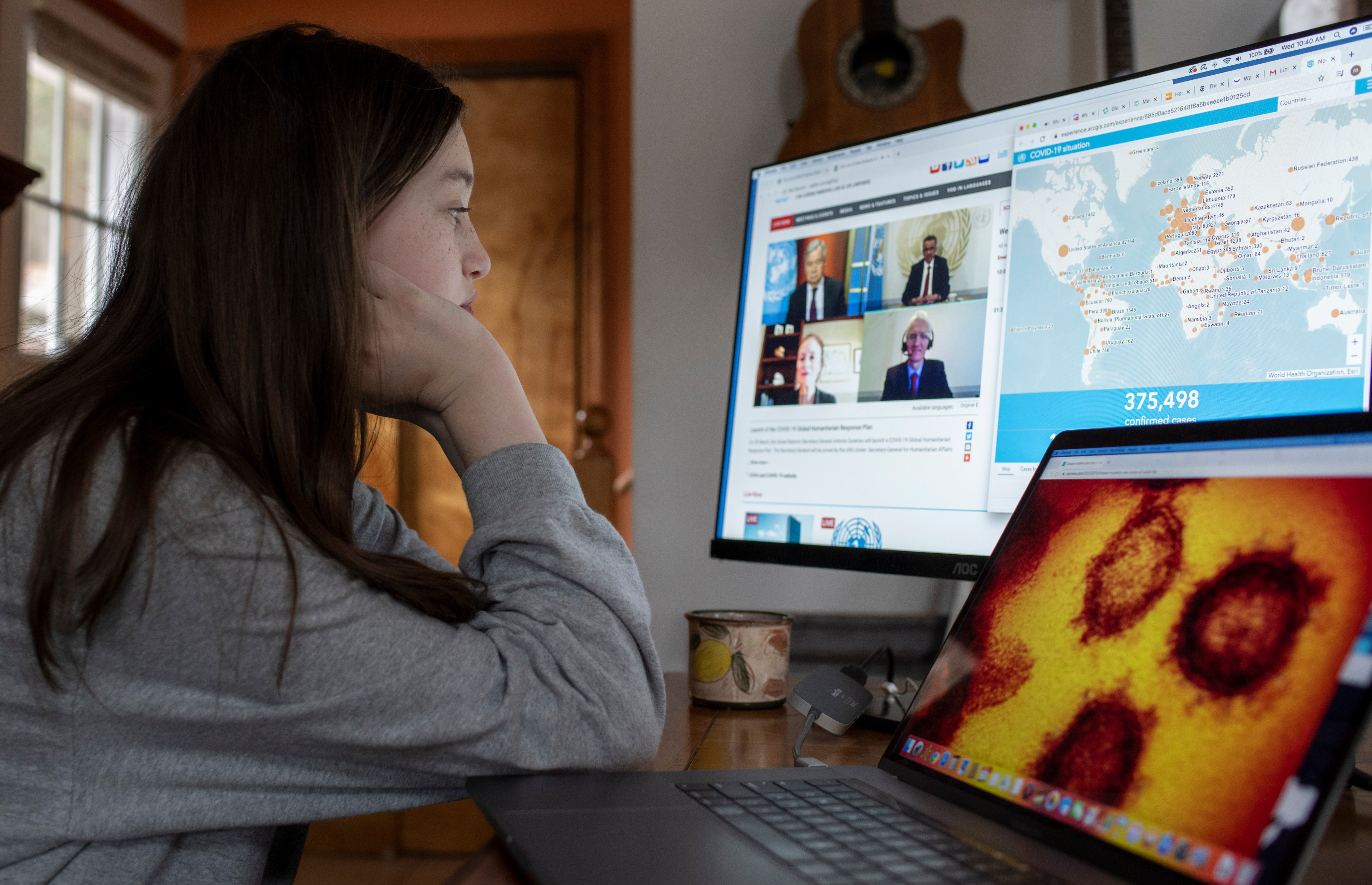 UN Photo/Mark Garten
UN Photo/Mark Garten
Building back better: A way forward from COVID-19
Our highly interconnected world provides greater opportunities for the emergence and spread of infectious disease, including zoonotic and vector-borne diseases. Between 1980 and 2013, there were over 12,000 recorded disease outbreaks affecting more than 44 million people worldwide, including zoonotic viruses such as SARS, MERS, H1N1 (avian) and H5N1 (swine) influenza viruses.
Estimated Costs of COVID-19
In addition to the tragic loss of life, the COVID-19 pandemic will have lasting impacts on sustainable development. The Asian Development Bank estimates that COVID-19 will cost the global economy trillions of dollars.
By comparison, the World Bank estimated that prevention would require an average per capita expenditure of $1.69 annually to achieve an acceptable level of epidemic preparedness. In addition to very high costs to economies, pandemics also have wide ranging long-term consequences to people’s health and productivity, by diverting resources from non-emergency health care and other public goods and services.
“The outbreak will have profound and lasting economic and social consequences in every corner of the globe,” says Inger Andersen, Executive Director of the UN Environment Programme. “In the aftermath of the crisis, when economic stimulus packages composed of infrastructure are designed, there is a real opportunity to meet that demand with green packages of renewable energy investments, smart buildings, green and public transport, etc.”
Preventing Zoonotic Disease Spread
The COVID-19 global crisis has made clear that more robust, comprehensive and coordinated prevention strategies are needed. It is also critical that all countries have the capacity to detect, assess, and respond to public health events that may arise in future. Key preventative measures include:
- Surveillance: Continuous monitoring of indicators of the rise of zoonotic diseases and information-sharing between human health, agriculture, and environment sectors is a key component to better understanding disease transmission dynamics.
-
Investment: Spending on pandemic prevention is far less costly than response. In 2003, the SARS outbreak alone cost an estimated $52 billion.
-
Collaboration: Multisectoral policy development and implementation are foundational pillars of prevention, early detection and response. ‘One Health’ is an integrated approach to the design of programmes, policies, legislation and research with joint participation from governments, in collaboration with diverse sectors and disciplines, including public health, veterinary medicine, epidemiology, ecology, and others.
“The One Health approach, which recognizes the intrinsic connection between human health, animal health and the health and resilience of ecosystems, can help guide us towards an effective post-2020 global biodiversity framework and help achieve the Sustainable Development Goals,” CBD Acting Executive Secretary Elizabeth Maruma Mrema says.
Building Back Better
In their efforts to stimulate post-COVID-19 economic recovery, some governments have announced plans to roll back environmental standards or related measures. But experts question whether the potential short-term economic boost is worth the long-term costs to resilience.
“Scientists warn that deforestation, industrial agriculture, illegal wildlife trade, climate change and other types of environmental degradation increase the risk of future pandemics, raising the probability of major human rights violations,” says David Boyd, the UN Special Rapporteur on human rights and the environment.
The pandemic already is expected to result in an increase in the amounts of medical and hazardous waste generated. The addition of policy decisions that allow for increased or unmonitored pollution to water or the air has broad, negative ecological impacts.
“It is my greatest hope that the fight against COVID-19 will soon be won; and that, as we recover, we can pursue the opportunity to re-imagine and transform our relationship with nature while promoting community and global health,” Mrema says.
Read more about COVID 19 and nature
More Information:
Latest Information on UN response
Press Release World Health Day
Article UN COVID-19 Response Plan
Article COVID-19 environmental roll back ‘irrational’ and irresponsible’
Article COVID-19 is not a silver lining for the climate
Article: Coronavirus Pandemic Could Cost the World $4.1 Trillion